Home of UT
Materials Science and
Engineering
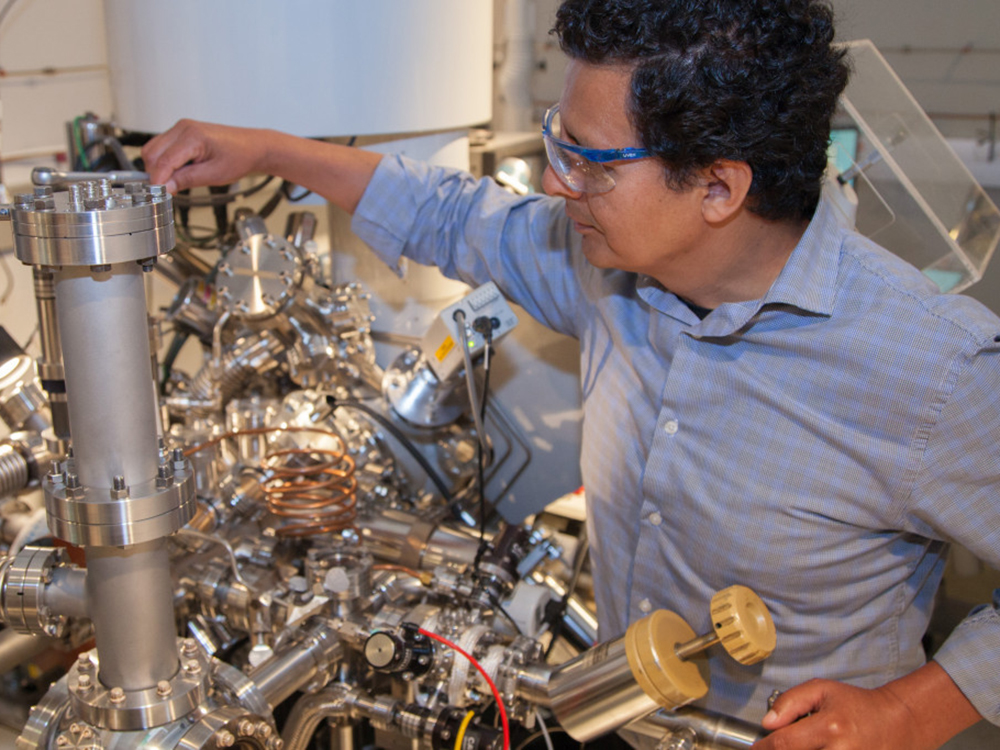
Core Faculty
TMI's core faculty lead cutting-edge research by running their grants through the institute, fostering collaboration and resource sharing.
Learn More
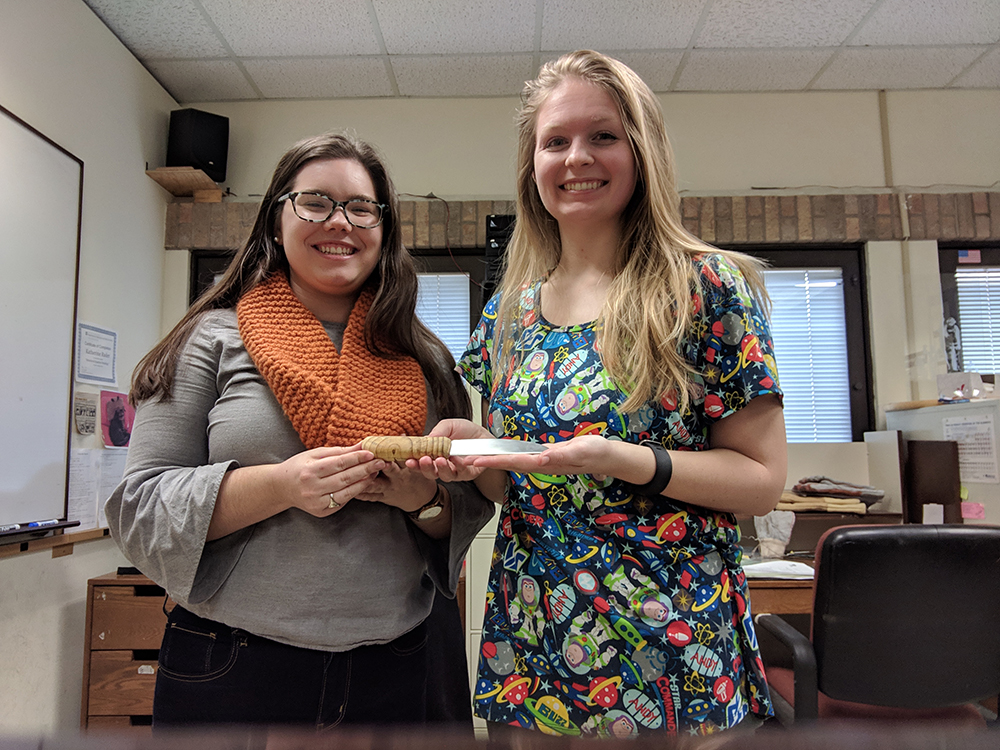
Graduate Program
Our Materials Science and Engineering program is one of the best in the nation, and our graduates go on to be leaders in their fields.
Learn More
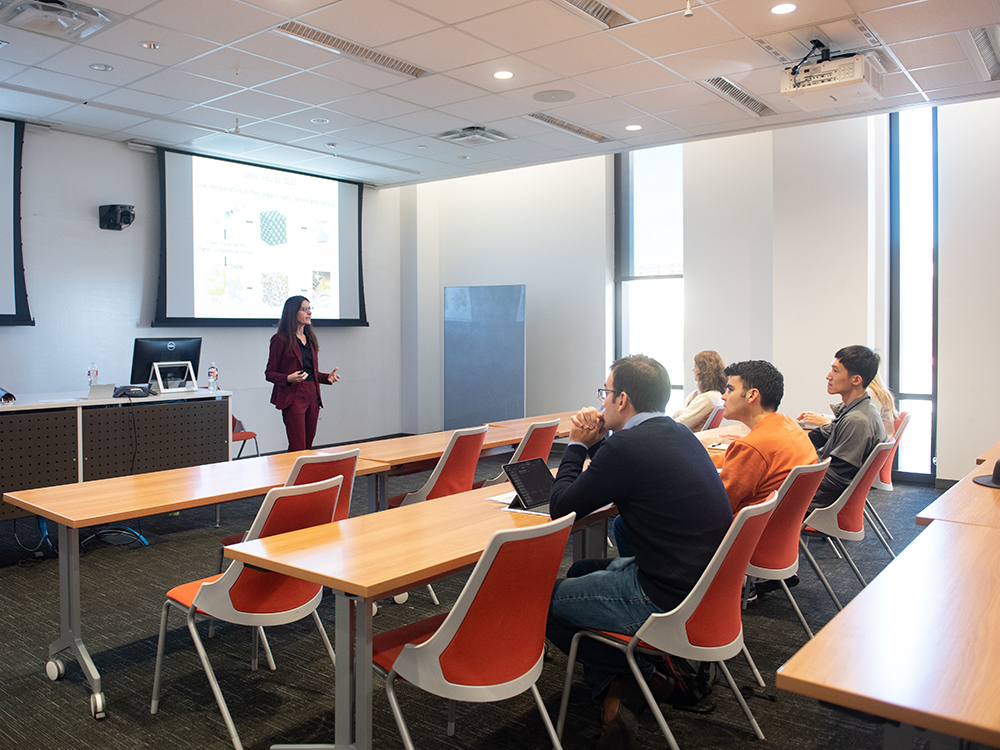
Research
TMI supports interdisciplinary research at UT Austin, with over 100 faculty focusing on clean energy, nanotechnology, and advanced materials using our state-of-the-art facilities.
Learn More
Home
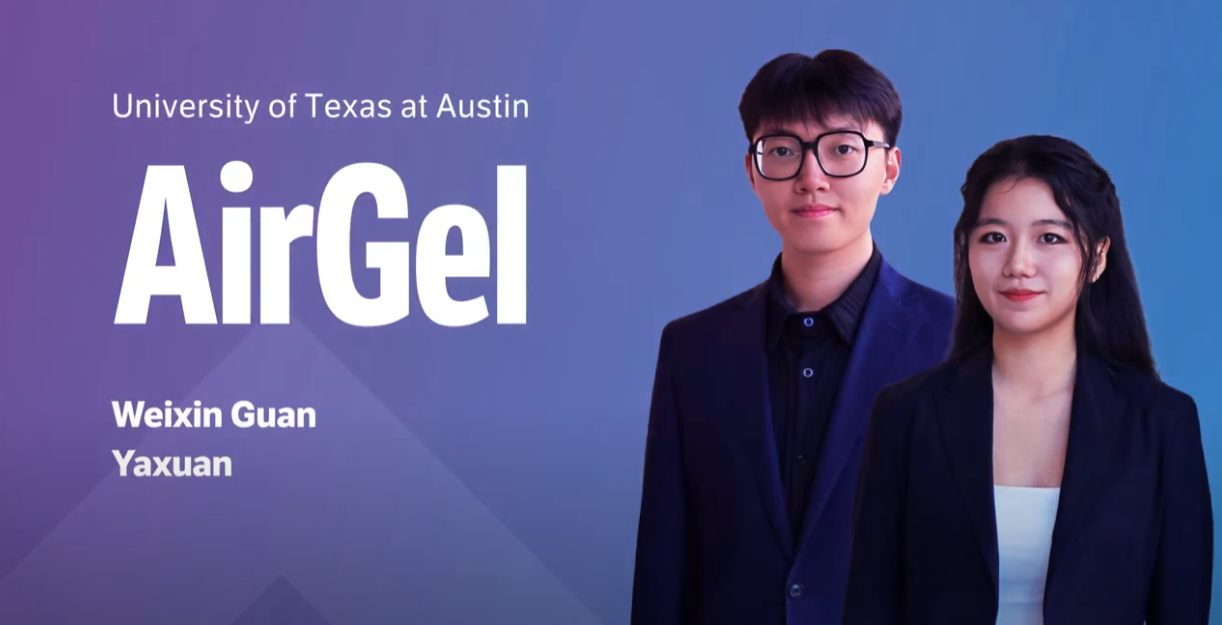
AirGel Takes Top Prize and People’s Choice Award for Innovative Water-Harvesting Device
*Reposted from UT News*
Weixin Guan and Yaxuan Zhao, graduate researchers with the Texas Materials Institute and the Walker Department of Mechanical Engineering at UT’s Cockrell School of Engineering, were recognized for their innovative and cost-effective device, AirGel, which extracts drinking water from humidity in the air. Their invention also won the competition’s People’s Choice Award and received a USPTO Patent Acceleration Certificate from the U.S. Patent and Trademark Office.
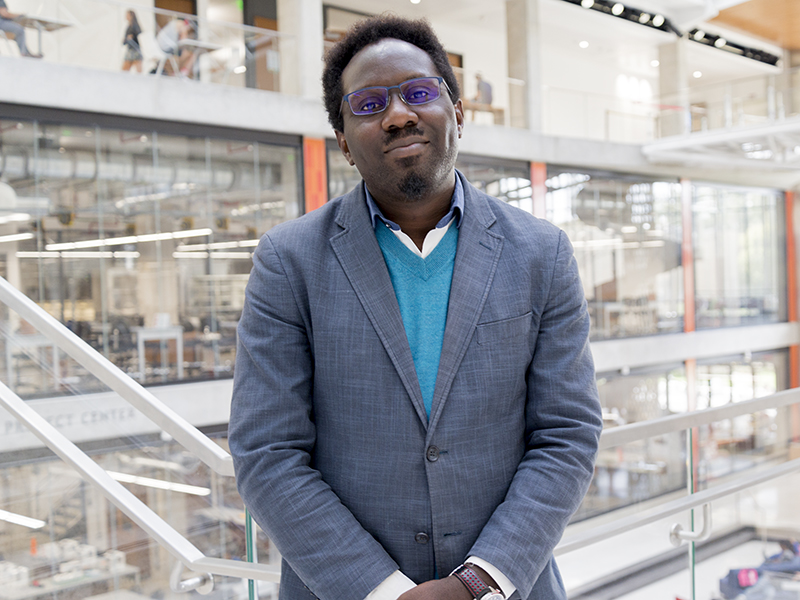
$2.5 Million Grant Awarded to Deji Akinwande for Wearable Health Technology
Dr. Deji Akinwande, a professor in Electrical and Computer Engineering department and an affiliate of TMI, was awarded a contract of up to $2.5 million from the Advanced Research Projects Agency for Health (ARPA-H), a governmental agency aimed at funding research that supports biomedical and health breakthroughs. This award will help advance Dr. Akinwande's development of a wearable blood pressure monitoring system, a key vital sign for assessing cardiovascular health.

Team from Samanta Group Publishes on DNA Tweezers & Enzyme Control
Dr. Devleena Samanta, a faculty affiliate of Texas Materials Institute, and a small team from her lab, have recently published a new article introducing the use of single-moledule DNA tweezers (SMDTs) to control enzymes and turn them on and off. Dr. Shivudu Godhulayyagari, a postdoctoral fellow, and Sara Nixon, a graduate student in chemistry, developed this new way to control enzymes without needing to change the enzyme itself.
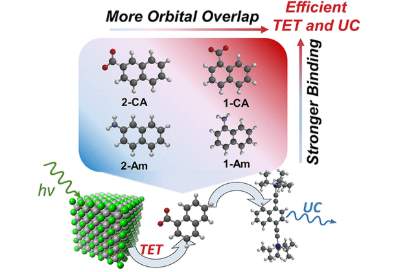
Roberts' Lab Publishes New Work on Quantum Dots
Dr. Sean Roberts, a faculty affiliate of the Texas Materials Institute, and his group have had their work on lead halide perovskite quantum dots recently published in ACS Energy Letters. The team studied how different variants of naphthalene energy acceptors stick to these dots, which impact their ability to facilitate photon upconversion, a process wherein low-energy visible photons are used to drive emission of high-energy UV light. The production of UV light via this process has several potential uses, such as initiating chemical reactions and facilitating high-resolution 3D printing.
Page 8 of 47
Texas Materials Seminar Series
The Texas Materials Seminar Series features MSE 397 Seminars, TMI Distinguished Lectureships, and TMI Special Seminars, where leading faculty and professionals from around the world share cutting-edge innovations and advancements in materials engineering with our students.
Learn More
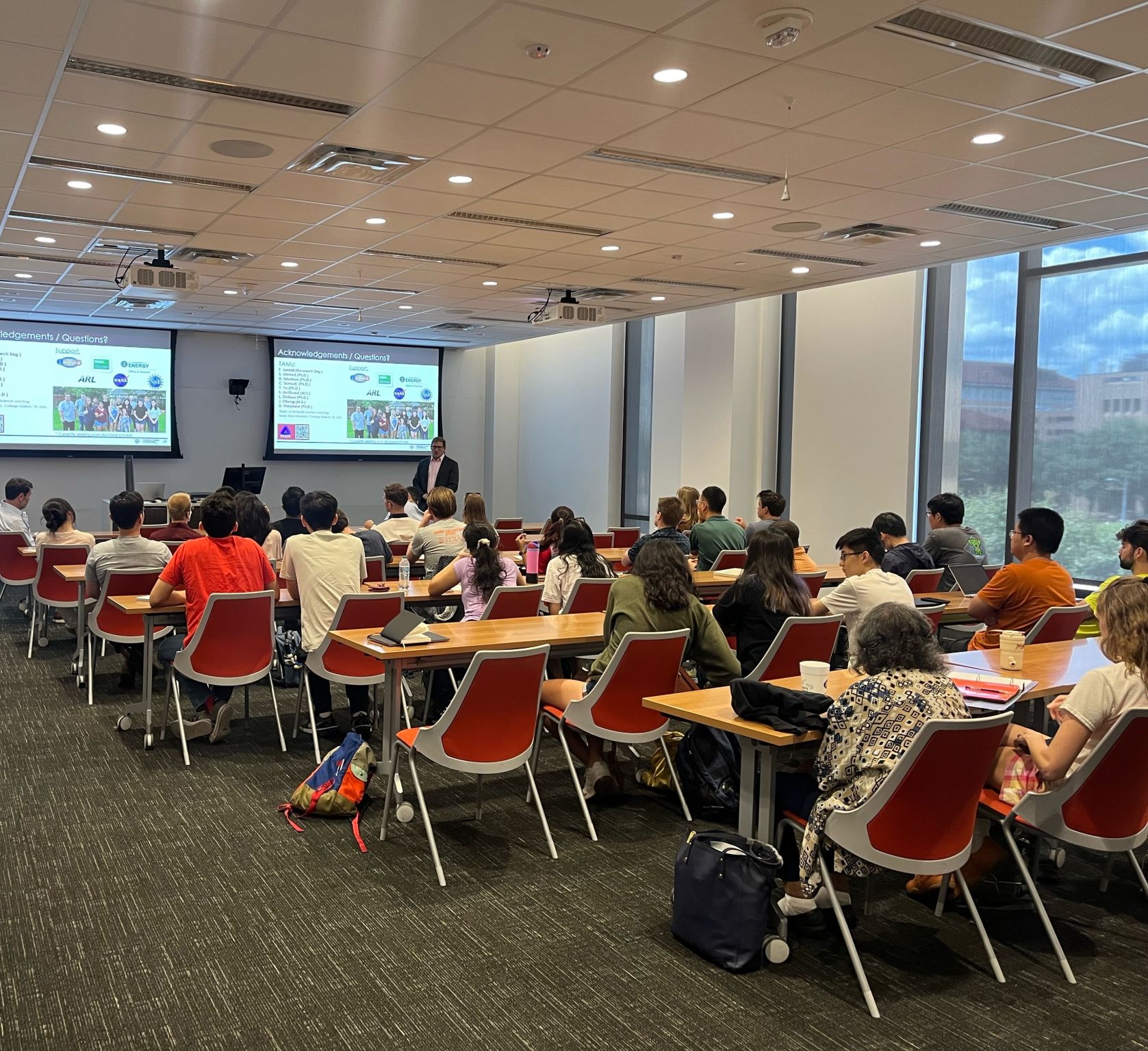
News
TMI Faculty Celebrated as Highly Cited Researchers in 2025
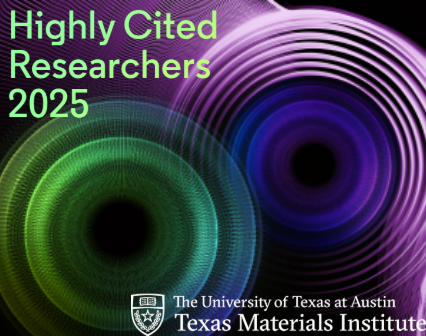
Seven faculty members who work with and in the Texas Materials Institute have been distinguished as Highly Cited Researchers for 2025 based on Clarivate's Web of Science Core Collection, a platform that provides reference and citation data from academic journals, conferences, and other documents across disciplines. Each Highly Cited Researcher has authored mulitple highly-cited papers and rank in the top 1% for their field and publication year.
Alexander Demkov elected as MRS Fellow

Dr. Alexander Demkov, a professor of Physics, an associate faculty member of the Oden Institute, and one of the Texas Materials Institute's Core Faculty, was elected as 1 of the 18 MRS Fellows for 2026.
MS&E Graduate Student Publishes on Connection Between Battery Use, Recharging, & Interface Flattening
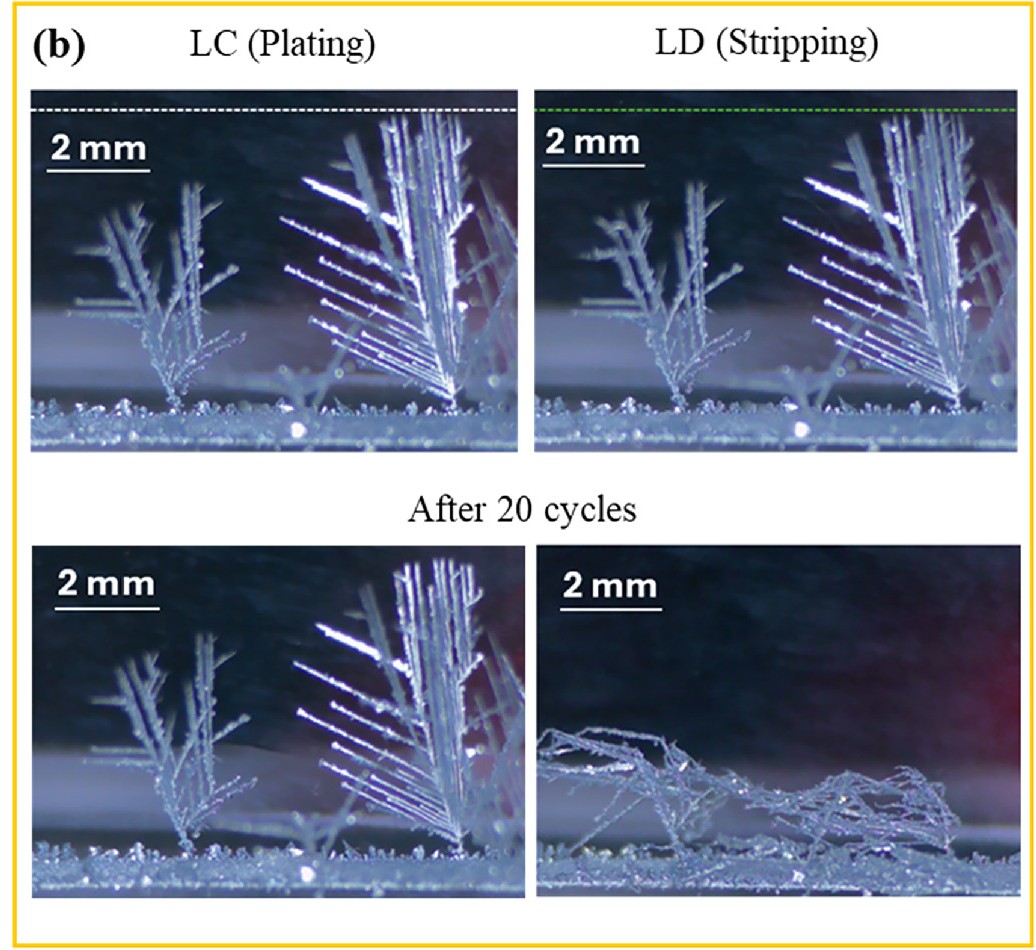
Tushare Telmasre, a graduate student in the Materials Science & Engineering Program, has recently published an article in ECS Advances that explores the connection between battery usage, recharging, and the surface of the zinc anode. A student in Dr. Venkat Subramanian's lab, Telmasre, along with postdoctoral researcher Dr. Lubhani Mishra, and other UT researchers from the CMES Lab, the paper finds that how a battery is used and then recharged directly impacts the surface of the anode and dendrite growth.
AirGel Takes Top Prize and People’s Choice Award for Innovative Water-Harvesting Device

*Reposted from UT News*
Weixin Guan and Yaxuan Zhao, graduate researchers with the Texas Materials Institute and the Walker Department of Mechanical Engineering at UT’s Cockrell School of Engineering, were recognized for their innovative and cost-effective device, AirGel, which extracts drinking water from humidity in the air. Their invention also won the competition’s People’s Choice Award and received a USPTO Patent Acceleration Certificate from the U.S. Patent and Trademark Office.
$2.5 Million Grant Awarded to Deji Akinwande for Wearable Health Technology

Dr. Deji Akinwande, a professor in Electrical and Computer Engineering department and an affiliate of TMI, was awarded a contract of up to $2.5 million from the Advanced Research Projects Agency for Health (ARPA-H), a governmental agency aimed at funding research that supports biomedical and health breakthroughs. This award will help advance Dr. Akinwande's development of a wearable blood pressure monitoring system, a key vital sign for assessing cardiovascular health.
$12M+
In Grant Funding
20+
Research Patents
10K+

